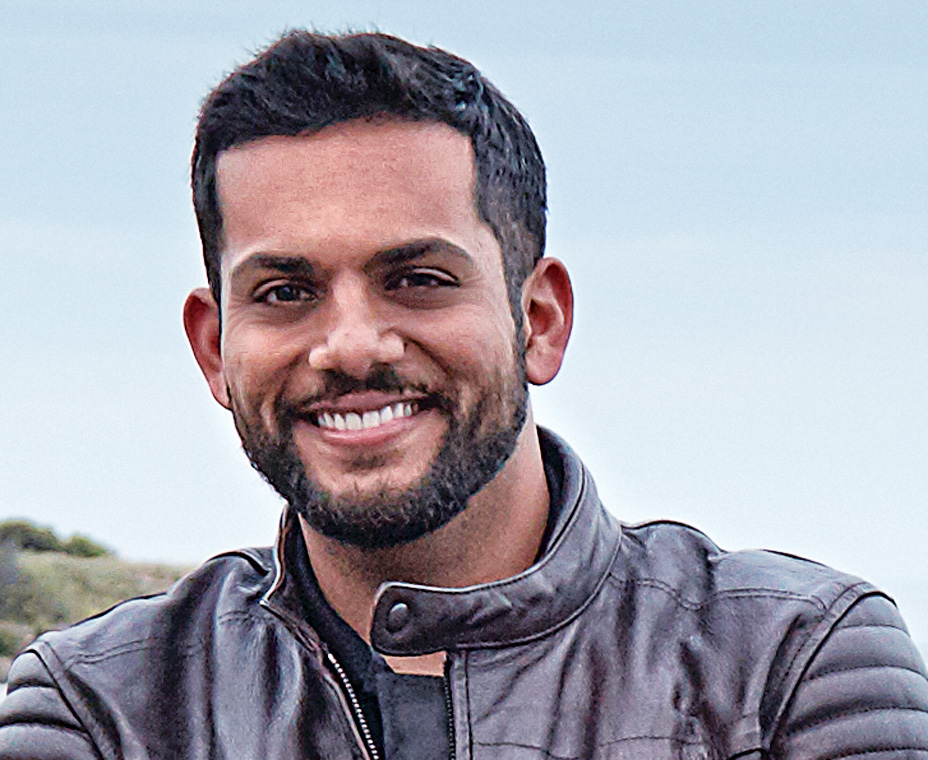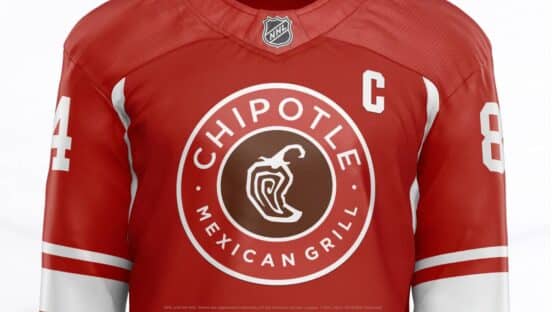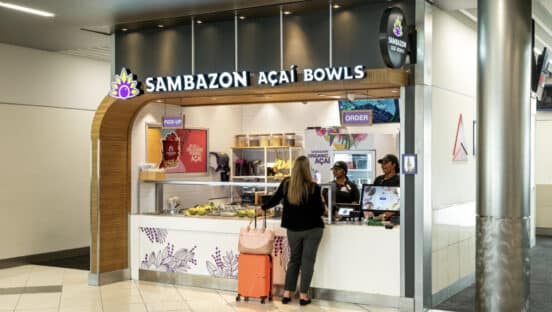While diversity is an important issue across all facets of the restaurant industry, it’s especially critical to build a diverse framework in an emerging market like fast casual. As fast-casual concepts evolve from regional players with a handful of units to national brands with dozens of locations and multiple management levels, they have the opportunity to cultivate a powerful system-wide commitment to inclusion and diversity.
So how can a multicultural population play a bigger role the industry’s future success? We asked fast-casual leaders of Asian, Hispanic, and black heritage to share their stories—and their insights on what must be done to improve diversity in fast casual.
Hasnain Zaidi
Founder and COO, Tava Kitchen
At Tava, we believe deeply in the power of diversity—of ethnicity, of gender, of background, all of it. Having people who look at the world differently, who see things differently, who have their own unique spin on things helps spur creativity and push the envelope. Part of the appeal of fast casual is that in an age-old industry, new things are being brought to life, and for that to truly happen, you need people who can imagine something different. Our customer base is growing more and more diverse, and they’re increasingly excited about and embracing new ways of viewing the world. Having the C-suite be a bunch of good old boys who grew up in “the business” just isn’t good enough.
I also think that it’s incredibly important to have the C-suite of restaurants be more reflective of the workforce they hire. Creating a strong company culture, finding the right talent, and keeping them engaged—all that starts from the top. Having diversity in the leadership allows for fast-casual restaurants to be more open, more creative, more humble, and, ultimately, more welcoming places to be.
With restaurants, diversity was never an issue at the single-operator level. There are plenty of dreamers who bring their vision to life with a restaurant that they pour their heart and soul into. I also think it’s interesting to note that there seems to be a good deal of diversity in the kitchen, where someone’s skill can speak for itself. I think there are some incredible chefs from all walks of life creating food that will blow your mind. The challenge becomes supporting entrepreneurs as they transition from single- and double-unit concepts into multiunit concepts, as well as getting a broader set of views around the boardroom tables at large concepts.
Some of the diversity in the C-suite will happen naturally over time as consumers embrace concepts and leaders that bring something unique to the table. But some of it will need to come from fast-casual restaurants making a commitment to hiring and promoting diverse viewpoints at the highest levels of their organization, not out of a sense of fairness, but out of a sense of progress. There shouldn’t be any barriers for the best and brightest to leave their mark on the way that we as Americans eat food.
Aylwin Lewis
CEO, Potbelly
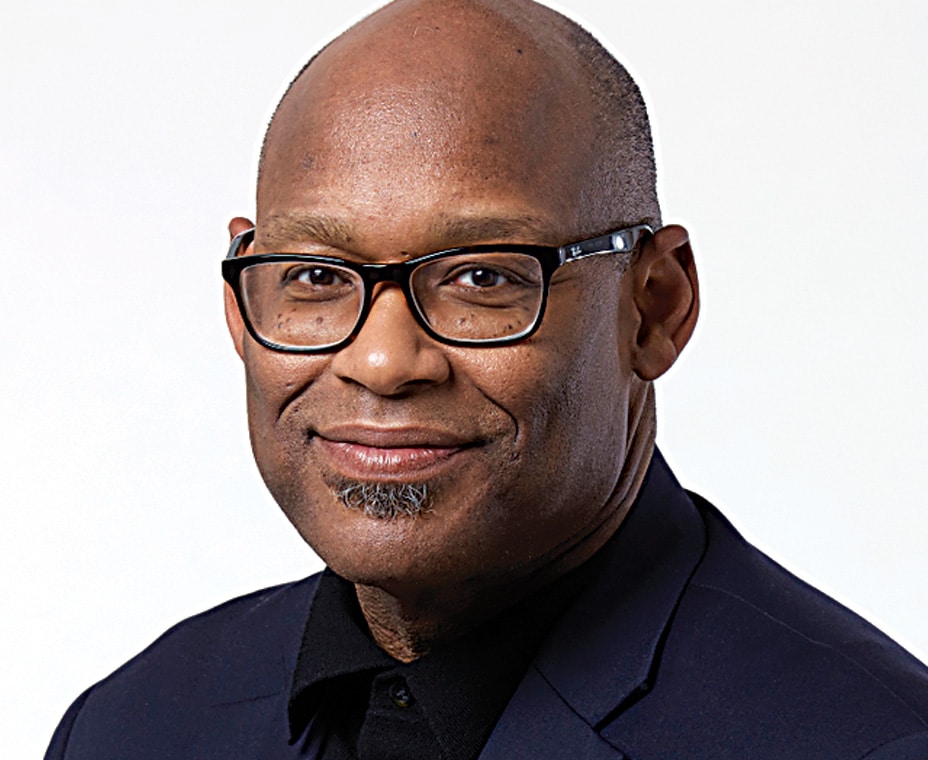 I always thought I wanted to be a writer of great American novels—I studied English literature at the University of Houston. While in school, I took a job at Jack in the Box. I liked building a business and doing the work of a leader. I learned a great deal about people and multiunit process there. I worked hard and was challenged to learn more and more, and found the industry completely rewarding.
I always thought I wanted to be a writer of great American novels—I studied English literature at the University of Houston. While in school, I took a job at Jack in the Box. I liked building a business and doing the work of a leader. I learned a great deal about people and multiunit process there. I worked hard and was challenged to learn more and more, and found the industry completely rewarding.
I moved up the ranks there and then joined Yum! Brands, the parent company then of Taco Bell, Pizza Hut, KFC, and Long John Silver’s. Eventually, I oversaw KFC’s area operations for Chicago and the Great Lakes region, and in 1996 was promoted to the post of chief operating officer of the KFC and Pizza Hut divisions. Later, I became president and chief multibranding and operating officer for Yum! Brands. I stepped out of the restaurant industry for a while to be president/CEO of Kmart/Sears, prior to joining Potbelly as CEO in 2008.
There weren’t many role models when I started out, but nobody does it alone. I have had many people help me along the way, most notably my parents and sisters; I inherited my life-long learner and bookworm habits from my mother, and I used to steal my older sister’s college textbooks and read them. [And there were] a few great business leaders. First was Bob Nugent from Jack in the Box. He taught me the power of spending time with people who don’t report to you. He spent time with me early in my career, and the memory of that is strong. Kyle Craig from KFC taught me you could be nice and still win. David Novak, the CEO of Yum who I worked with for 10 years, taught me to bring my whole self to work. He taught me I could show emotions and provided a safe zone. Probably the smartest person I’ve ever met is Andy Pearson from Pepsi. Andy was old school; he taught me to be humble, admit when you are wrong, correct the situation, and never stop learning.
Encouraging diversity at all levels is important. We take pride in making great hires at all levels of the company. For executives, diversity is important for many reasons. Most importantly, we need leadership that reflects customers, the communities we serve, our general managers, team members, and franchisees we have in our shops. Diversity is essential in today’s global business climate, as is having an appreciation for a wide variety of perspectives and opinions.
Ideally, I would not be a unique CEO just because of my race. At Potbelly, we respect diverse backgrounds and points of view. It makes for better teamwork and better decisions. This is part of our culture and we live it—from the top down. Ensuring that every manager is living the values creates an internal vibe that radiates from the business. It becomes part of your image, your fabric. That’s when you know you’re doing it right. But it also depends on hiring the right people. So we hire nice people. One thing that makes Potbelly’s culture so fantastic is the fact that we let people bring their whole self to work. Employees can be who they are. Hair, clothing, shoes, race, sexual orientation, educational background are all unimportant. What matters is the values and how well they can live them. When you let people bring their authentic self to work, there will be joy in what they offer the company.
We embrace diversity here. Potbelly boasts three women on the board, as well as three female senior leaders on the executive team (marketing, HR, and development). Diversity must be more than words: You have to live it, just like your company’s other values. Having diverse people present with their thoughts and ideas adds a richness to the conversation. When you embrace diversity, your company will be better and your customers will be better served. /PHOTO: Potbelly
Billy Sims
Founder, Billy Sims Barbecue
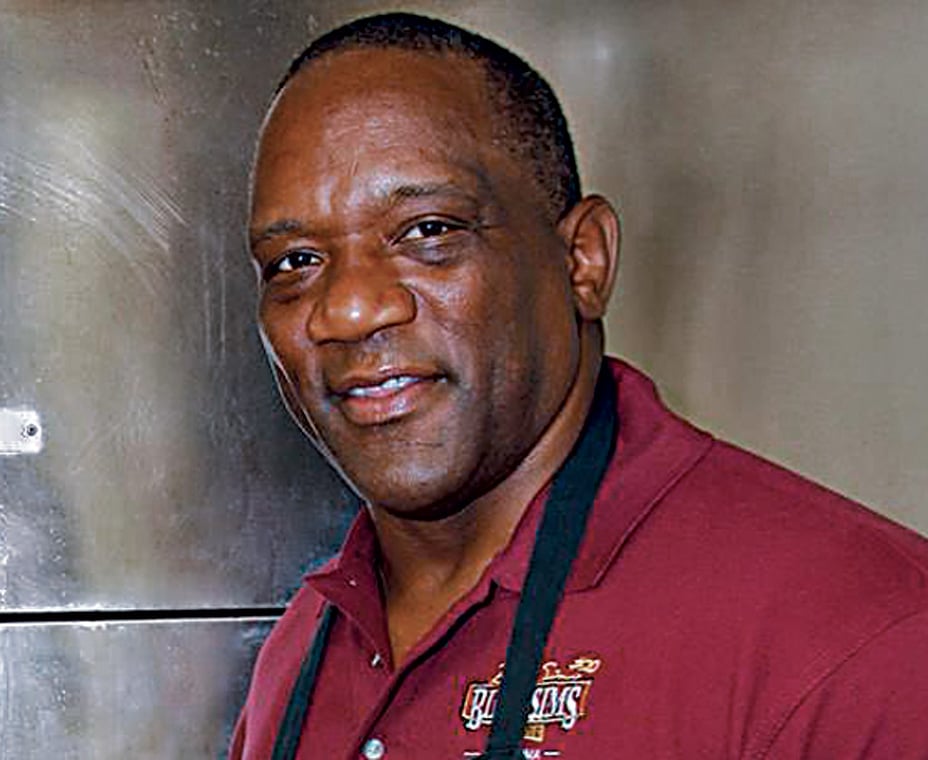 After my NFL career ended, I had the opportunity to hook up with my cofounder, Jeff Jackson. He came to me with the concept, and I was able to collaborate with him on how we wanted things to roll out. Together, we decided Tulsa, [Oklahoma,] really needed some good barbecue, and in 2004, Billy Sims Barbecue was born. Jeff and I work well together when it comes to putting ideas in place. It’s helped steer me in the right direction in the restaurant business, and has helped me focus on the direction of our brand.
After my NFL career ended, I had the opportunity to hook up with my cofounder, Jeff Jackson. He came to me with the concept, and I was able to collaborate with him on how we wanted things to roll out. Together, we decided Tulsa, [Oklahoma,] really needed some good barbecue, and in 2004, Billy Sims Barbecue was born. Jeff and I work well together when it comes to putting ideas in place. It’s helped steer me in the right direction in the restaurant business, and has helped me focus on the direction of our brand.
Diversity offers a productive environment that cultivates success. If everyone brings the same ideas to the table, then we become stale. At the C-suite level, we must be progressive in our forward thinking. It’s amazing what we can come up with when we’re all together working toward the same goals. For the fast-casual segment to continue to grow, we need to be creative in offering solutions for the ever-changing needs of our consumers—something diversity helps to promote.
There are many new fast-casual concepts emerging every year. To maintain a continued growth in the segment, fast-casual concepts and their leaders should continually be evaluating the needs of their markets and applying fresh ideas and program offerings to the diverse demands of consumers. /PHOTO: Billy Sims
Jae Kim
Founder & CEO, Chi’Lantro BBQ
I started Chi’Lantro in February 2010 out of a food truck selling The Original Kimchi Fries by maxing out my credit cards, and I had just enough money to sustain my business for six months. I own 100 percent of the company today. What I am most proud of are people who are still with me after six years of business. I have an employee who started with me when he was 20 years old, cooking on the food truck, and now he is the general manager at the store that generates $1.5 million. I learned from my mistakes, and getting involved with groups like [Entrepreneurs’ Organization] has helped me tremendously in my career.
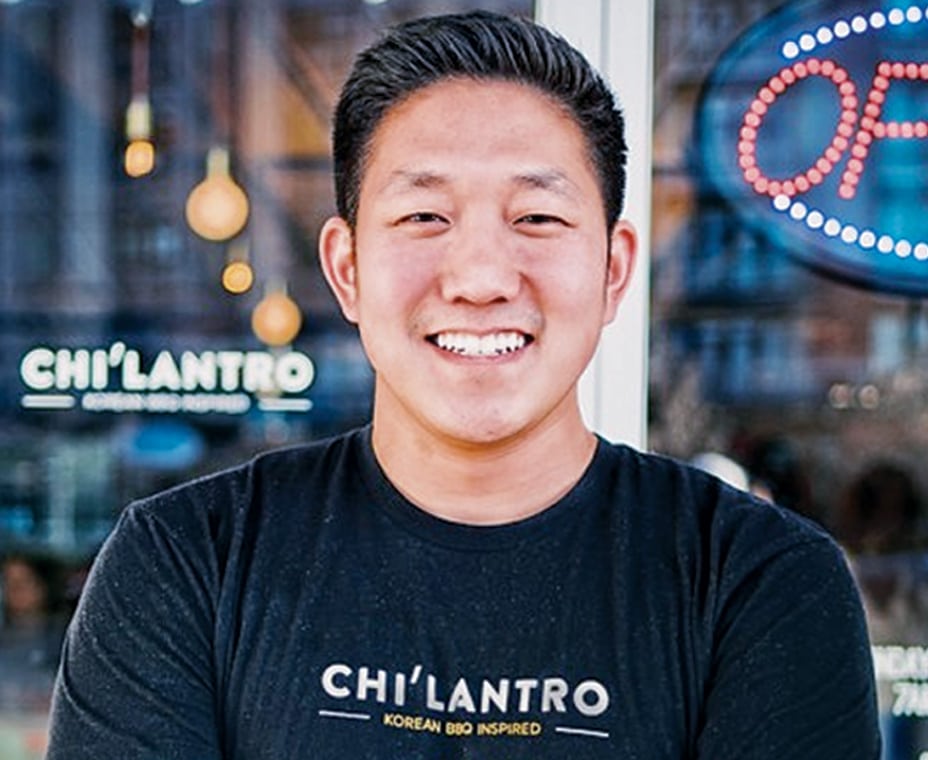 We are in Texas, and in some parts of Texas, people have never tried Korean BBQ prior to our food. When I started my business in 2010, it seemed to me that not a lot of our customers liked kimchi. They would decline my offer when I told them it’s fermented cabbage, so I used to throw it away. That frustration turned into creating our signature dish, The Original Kimchi Fries. Today, we are globally known for our Original Kimchi Fries, and we go through over 100,000 pounds of fries per year with our homemade kimchi. /PHOTO: Chi’Lantro BBQ
We are in Texas, and in some parts of Texas, people have never tried Korean BBQ prior to our food. When I started my business in 2010, it seemed to me that not a lot of our customers liked kimchi. They would decline my offer when I told them it’s fermented cabbage, so I used to throw it away. That frustration turned into creating our signature dish, The Original Kimchi Fries. Today, we are globally known for our Original Kimchi Fries, and we go through over 100,000 pounds of fries per year with our homemade kimchi. /PHOTO: Chi’Lantro BBQ
Adriana Lopez Vermut
OWNER AND COFOUNDER, pica pica
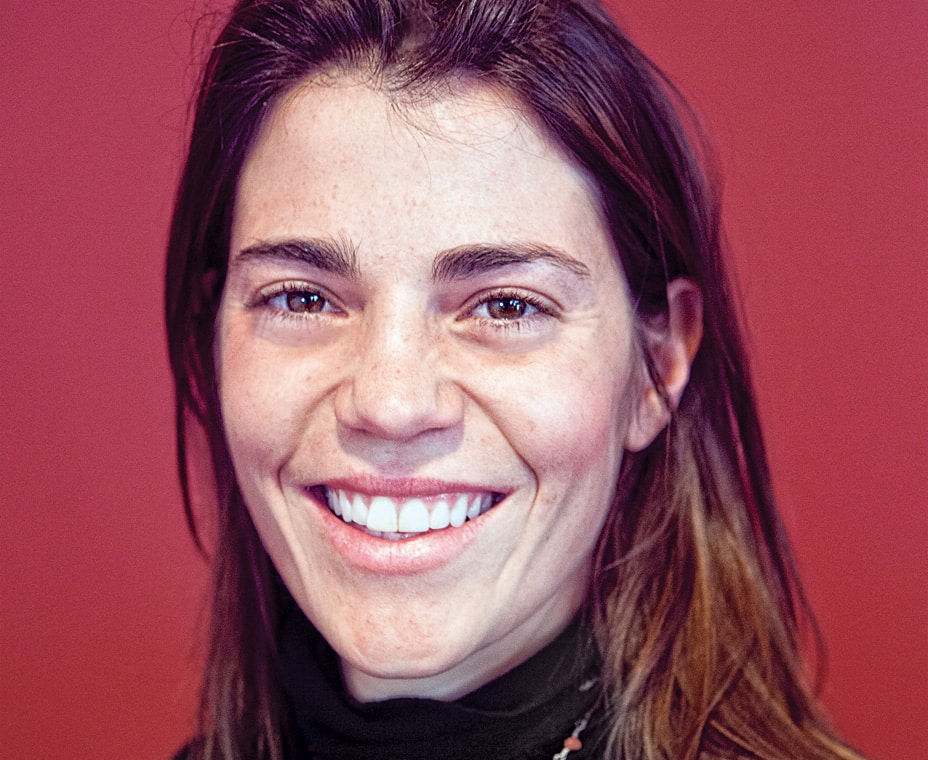 We opened in 2008, just before the crash and the huge economic downturn.
We opened in 2008, just before the crash and the huge economic downturn.
If I had been on my own, I probably would have closed down that year because we were just bleeding. But my father helped me stay the course. His mentorship on how you manage a crisis, how you pare down, and how you become really creative has been key.
A lot of people who open ethnic restaurants seek to serve their own group. We have focused on using Venezuelan cookery, but we’ve taken liberties with how we present it. Probably 95 percent of my guests are not Latin, let alone Venezuelan.
Every kitchen in the Bay Area has, for the most part, Latino workers, but there are very few Latina owners. Half my staff is female and my managers are women so I do see more of that happening. But they do have a hard time being Latinas, working with and being respected by a male staff. It probably helps that I am there and that I’m female and a mother of young kids; it’s not like I’m a grandmother or a single woman without kids. I’m right in there with them. We’re all kind of peers in that sense. /PHOTO: Pica Pica
David Choi
Founder, Seoul Taco
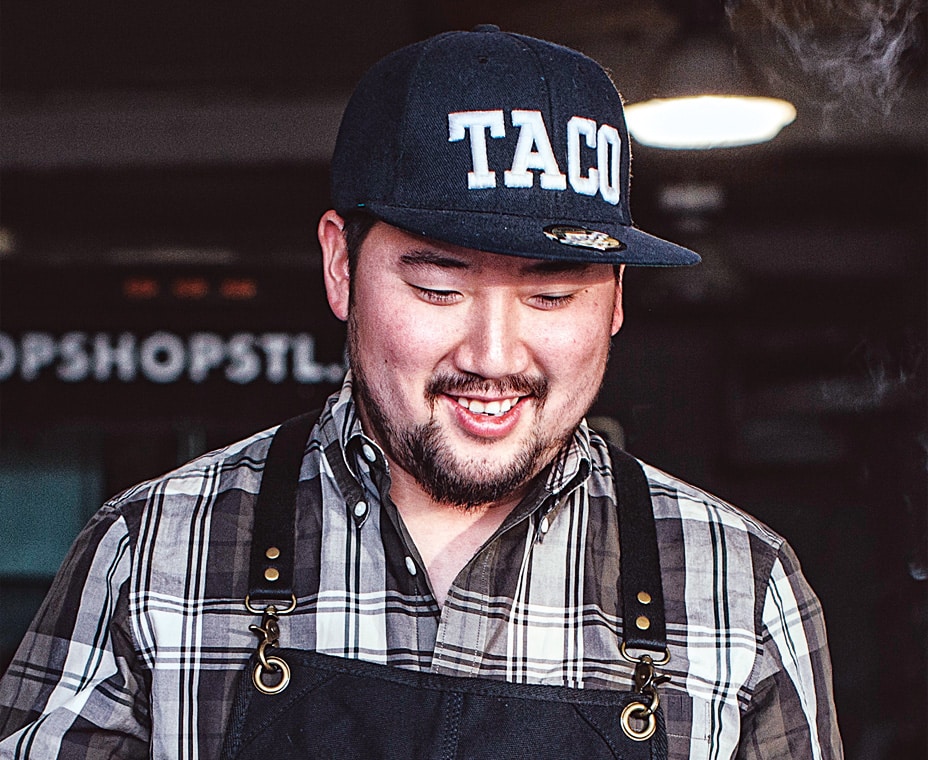 Prior to starting a food truck in 2011, I worked various jobs in different fast-casual restaurants. I was volunteering as part of a church leadership team before I started my business. It’s a large church in Naperville, Illinois, with thousands of people attending each week. One of my best friends is in charge of a lot of departments within the church, and he got me involved.
Prior to starting a food truck in 2011, I worked various jobs in different fast-casual restaurants. I was volunteering as part of a church leadership team before I started my business. It’s a large church in Naperville, Illinois, with thousands of people attending each week. One of my best friends is in charge of a lot of departments within the church, and he got me involved.
I worked specifically with over 500 high school students, which prepared me to be equipped as a leader in business. It is much like the hospitality industry. People are your main focus. You have to be able to resonate with others, have a sense of community, problem-solve, and relate with students from all different backgrounds. These skills became extremely helpful in opening a fast-casual restaurant. My friend helped guide me to develop these skills, and although we are in two completely different industries, he still mentors me through a lot of difficult decisions and how to properly scale.
Food is about diversity and exposing a wider audience to a specific culture. We want to bring the flavors of my Korean background to the table and serve people of all backgrounds. At Seoul Taco, we encourage diversity from onboarding to our leadership team and partners. I believe if your leadership reflects and represents the people who are your consumers, you develop a connection that is transparent and genuine in the dining experience. We are in it to serve people, not just hand out good food.
I think diversity has vastly improved as people are exposed to different cultures and food. Guests are excited to try new things. Being in fast casual, it is a huge platform for us to share part of our culture through food to the masses. More could always be done, but I generally feel that the most successful fast-casual concepts will display diversity internally, which in turn will see diversity in clientele. /PHOTO: Seoul Taco
Leticia Skai Young-Mohan
Co-Owner & CEO, LoLo’s Seafood Shack
Although I had years of fine-dining managerial experience before launching LoLo’s Seafood Shack, I thought it would be useful to attend the International Culinary Center’s program for Culinary Entrepreneurship. I received a lot of support and confidence from the program and am now a frequent speaker to potential students.
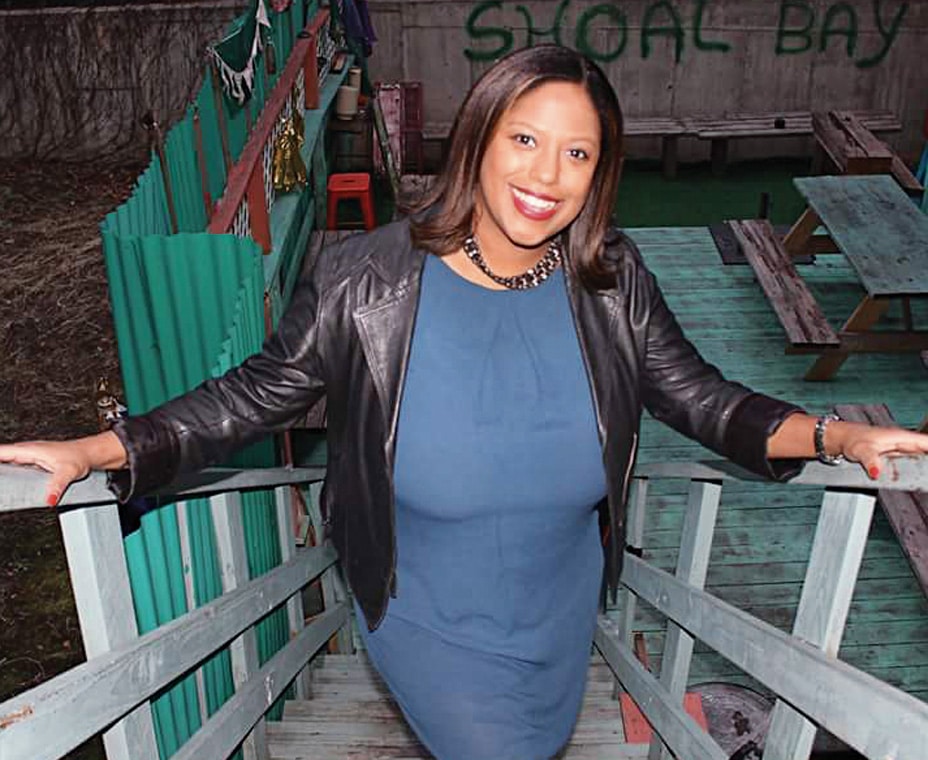 We are a diverse country, and it’s great for the leadership of the billion-dollar fast-casual industry to mirror the labor force and consumers. People are at the core of what we do in the restaurant industry and diversity creates more meaningful and deeper connections by drawing on our collective experiences. This benefits both consumer as well as the company.
We are a diverse country, and it’s great for the leadership of the billion-dollar fast-casual industry to mirror the labor force and consumers. People are at the core of what we do in the restaurant industry and diversity creates more meaningful and deeper connections by drawing on our collective experiences. This benefits both consumer as well as the company.
I recently went to the Global Restaurant Leadership Conference in Dubai. The moderator, Hattie Hill, CEO of the Women’s Food Service Forum, did a stellar job of highlighting the fact that almost 70 percent of new entrants into the workplace will be women and people of color.
Forums like this remind me that there is a lot to be done in the industry across both gender and cultural diversity. As emerging leaders in the industry we are tasked with nurturing cultural and gender diversity through the decision-making process and increasing variety through training and hiring. /PHOTO: LoLo’s Seafood Shack
Ratha Chaupoly
Cofounder, Num Pang
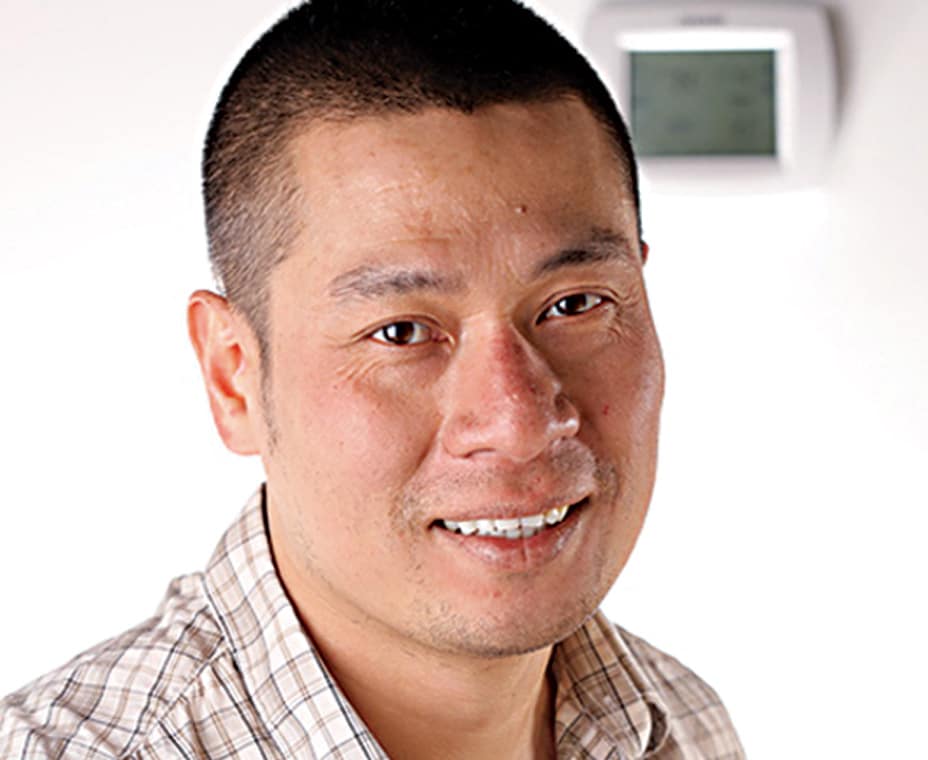 When I opened my own restaurant, Kampuchea, the Cambodian sandwiches were a hit. With such a customer craze for the sandwiches, we knew we had something special and decided to open Num Pang Sandwich Shop in March 2009. We wanted more people to experience what we developed, and sandwiches lend themselves to a fast-casual format—so that decision was easy. Pairing up with my business partner, Ben Daitz, was a big step. We have complementary skill sets, and that’s always very helpful.
When I opened my own restaurant, Kampuchea, the Cambodian sandwiches were a hit. With such a customer craze for the sandwiches, we knew we had something special and decided to open Num Pang Sandwich Shop in March 2009. We wanted more people to experience what we developed, and sandwiches lend themselves to a fast-casual format—so that decision was easy. Pairing up with my business partner, Ben Daitz, was a big step. We have complementary skill sets, and that’s always very helpful.
Overall, fast-casual properties are designed to feed more people and, therefore, expose more people to different cultures through food. The more diversity we have in the space, the more guests will not only understand but also get excited about different dishes from around the world. We are on our way and seeing more Latin and Asian concepts. But there is definitely room for much more growth. Every culture has options that could work for the fast-casual space—I encourage restaurateurs to explore those options and run with them. There is more of a thirst for different flavors out there than people think. /PHOTO: Num Pang
Otto Othman, Nedal Ahmad, and Nizar Ahmad
Partners, Pincho Factory
The idea for Pincho Factory came up at a July 4th barbecue, a joke, really, which quickly turned into a real business. The fast-casual industry was catching on, and we fell in love with the model from the start. We’ve implemented a lot of our own ideas, which today are known as fast casual 2.0
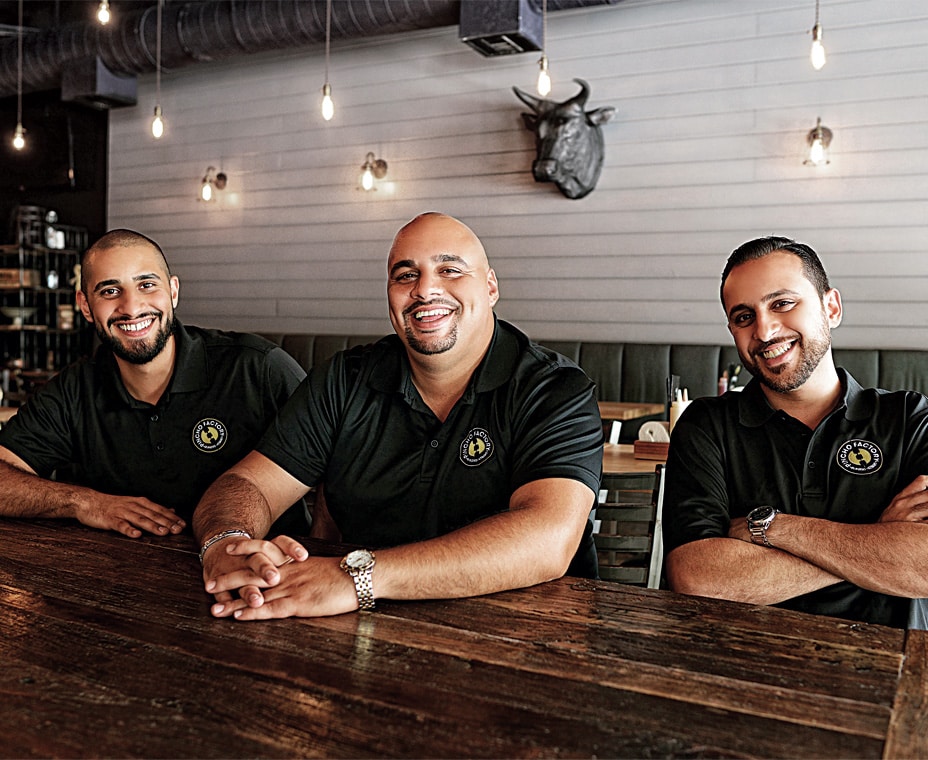 In Miami it was extremely tough early on to find mentors, but we were lucky enough to have guys like John Kunkel from 50 Eggs and Richard Hales from Sakaya Kitchen that were always there any time we needed advice. Today we are extremely fortunate to have amazing mentors like Jim Mizes from Blaze Pizza, and Andy Howard, former CMO of Wingstop. Surrounding ourselves with these amazing folks has truly made a difference when making important decisions. Bottom line: Their experience is invaluable.
In Miami it was extremely tough early on to find mentors, but we were lucky enough to have guys like John Kunkel from 50 Eggs and Richard Hales from Sakaya Kitchen that were always there any time we needed advice. Today we are extremely fortunate to have amazing mentors like Jim Mizes from Blaze Pizza, and Andy Howard, former CMO of Wingstop. Surrounding ourselves with these amazing folks has truly made a difference when making important decisions. Bottom line: Their experience is invaluable.
Diversity breeds originality. It is vital that in today’s world, organizations have the tools needed to adapt to the ever-changing market. And diversity gives the C-suite team various perspectives that truly help understand consumers better. A diverse group will solve a problem in a much different manner than a group of individuals with the same background.
The combination of today’s Internet age and the fast-casual industry have really given everyone a chance to compete in the restaurant game. You see more and more diverse groups of cofounders of new brands that are truly innovating the game and raising the bar.—Otto Othman /PHOTO: Pincho Factory/Alissa-Dragun
James Park
CEO, Garbanzo Mediterranean Fresh
While working for IBM in 2002, I was approached about the availability of two units of the fastest-growing sandwich chain in the industry at the time. Fortunately, I didn’t pursue those units and instead ventured off to the deep end with a virtually unknown concept: Penn Station East Coast Subs. During my time with Penn Station, I became one of the most successful franchisees in the chain, and the unit-level economics were off the charts. It was love at first bite (literally and figuratively).
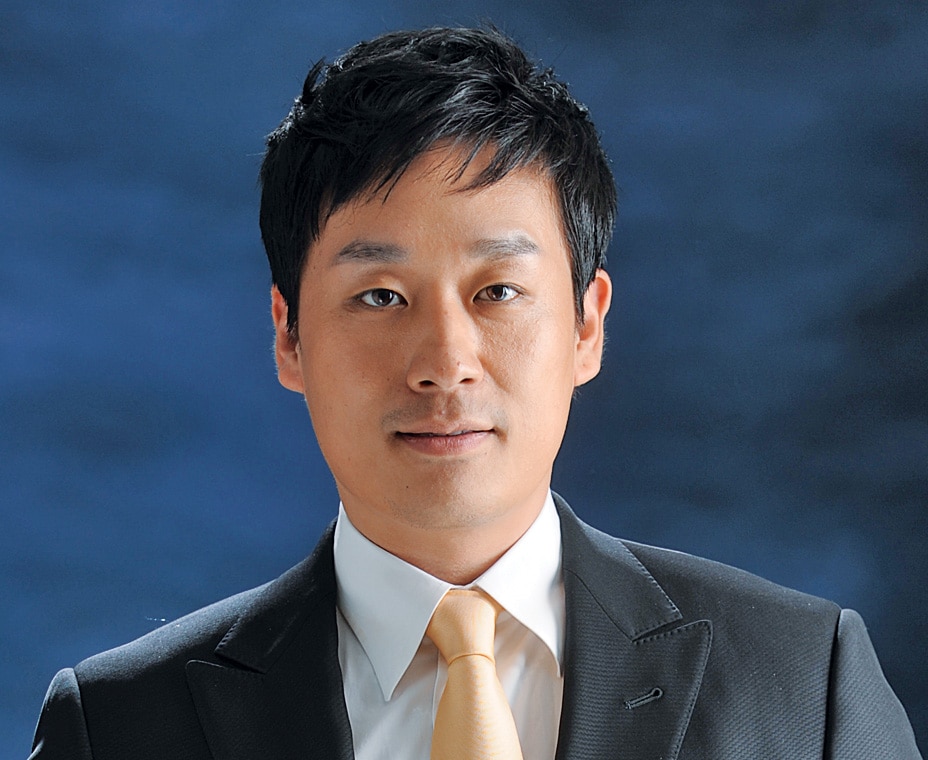 After selling my Penn Station franchise in 2006, I planned on taking a break. The sabbatical was short-lived. Charley Shin and Mike Fitzpatrick of Charley’s Philly Steaks invited me to join their organization as director of operations. I give Charley an immense amount of credit for teaching me the business at an enterprise level and taking me under his wing. I gained immense insight into an industry where more often we see failure than success. Frankly, I was in awe of Charley (as a fellow Korean-American), who was taking the industry by storm, carving a groove, and leaving a path that very few Korean-Americans have accomplished.
After selling my Penn Station franchise in 2006, I planned on taking a break. The sabbatical was short-lived. Charley Shin and Mike Fitzpatrick of Charley’s Philly Steaks invited me to join their organization as director of operations. I give Charley an immense amount of credit for teaching me the business at an enterprise level and taking me under his wing. I gained immense insight into an industry where more often we see failure than success. Frankly, I was in awe of Charley (as a fellow Korean-American), who was taking the industry by storm, carving a groove, and leaving a path that very few Korean-Americans have accomplished.
I believe a diverse workforce is tantamount to creating a great culture. But “diversity” isn’t something one learns in a book or at a seminar, in a day or in a semester. You have to be deliberate about keeping it out front in your recruitment and selection process, making it a stated priority. I believe the best thinking comes from our personal experiences, coupled with a desire to continuously learn and educate ourselves.
I’m convinced, as an industry, we’ve accomplished quite a bit thanks in part to some excellent organizations that should be recognized for their role in advancing diversity (Women’s Foodservice Forum, for example). However, as we look forward, the journey has only just begun. Many feel pigeonholed in their roles. This is where great networks and mentorships play such an important part. In fact, a small group of us are considering forming our own network, mainly designed around mentorship, called K.A.R.E. (Korean American Restaurant Executives). Over time, I believe we can help open up more doors for young Korean-Americans and, more important, prepare them to succeed once they walk through those doors. /PHOTO: Garbanzo Mediterranean Fresh
Al Bhakta
Managing Partner, Chalak Mitra Group
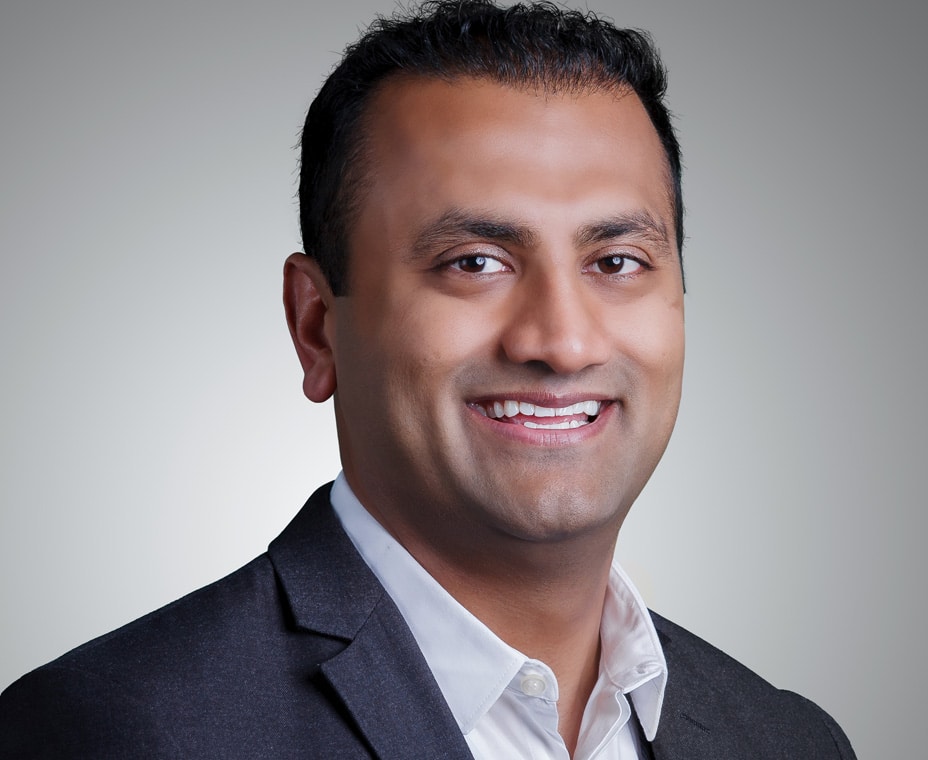 I have always looked at several of our franchisees in the various restaurant concepts we are in as mentors and individuals that I can learn from. One of our franchisees in Genghis Grill is Frank Carney, who founded Pizza Hut in 1958. He has left a legacy in the restaurant world. All learnings have helped me evolve and progress in my career. I would have made even more mistakes if those mentors hadn’t done what they did.
I have always looked at several of our franchisees in the various restaurant concepts we are in as mentors and individuals that I can learn from. One of our franchisees in Genghis Grill is Frank Carney, who founded Pizza Hut in 1958. He has left a legacy in the restaurant world. All learnings have helped me evolve and progress in my career. I would have made even more mistakes if those mentors hadn’t done what they did.
The world is changing. The consumer is changing. The food we eat is becoming more diverse. It only makes sense that the leaders who run the restaurant industry also have a more diverse profile. Fast casual and the restaurant industry in general have always welcomed diversity. Food inherently is very diverse and brings all cultures and walks of life together. We should continue to think about globalization and have the restaurant industry always on the forefront of diversity as a result. /PHOTO: Chalak Mitra Group/Joe Hernandez Photography

